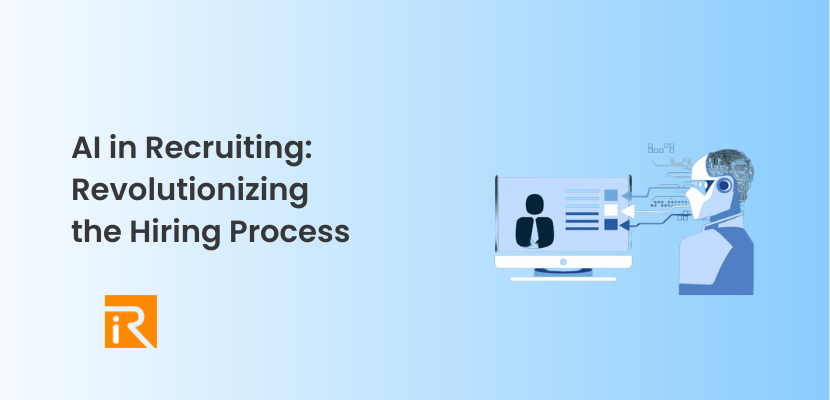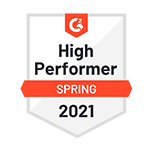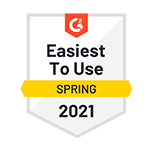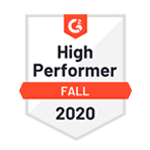In today’s rapidly evolving job market, companies face numerous challenges when it comes to finding and hiring the right talent. Fortunately, AI in recruiting have revolutionized the recruiting landscape, providing innovative solutions to streamline and optimize the hiring process. AI-powered recruiting tools and technologies enable organizations to attract top-notch candidates, automate repetitive tasks, improve candidate experience, and make data-driven decisions. In this article, we will explore the significant role AI plays in recruiting and how it has transformed traditional recruitment practices.
AI in Recruiting: Enhancing Talent Acquisition
AI has emerged as a game-changer in the field of recruiting, empowering organizations to improve their talent acquisition strategies and gain a competitive edge. Here are some key ways AI is transforming the hiring process:
-
Resume Screening and Candidate Matching
One of the most time-consuming tasks in recruitment is manually reviewing resumes and shortlisting candidates. AI-powered resume screening tools leverage natural language processing (NLP) algorithms to automate this process. These tools analyze resumes, identify relevant skills, experiences, and qualifications, and rank candidates based on their suitability for the role. By eliminating manual screening, recruiters can save valuable time and focus on engaging with the most qualified candidates.
-
Intelligent Sourcing and Candidate Outreach
Finding suitable candidates from a vast pool of talent can be a daunting task. AI-powered sourcing tools simplify this process by leveraging machine learning algorithms to search for potential candidates across various platforms and databases. These tools can analyze job descriptions, identify keywords, and match them with the skills and experiences mentioned in candidates’ profiles. Furthermore, AI-enabled chatbots and automated messaging systems can engage with candidates, answer their queries, and schedule interviews, enhancing the overall candidate experience.
-
Video Interviews and Assessments
Conducting in-person interviews for every candidate can be logistically challenging and time-consuming. AI facilitates the use of video interviews and assessments, allowing recruiters to assess candidates remotely. Video interview platforms use AI algorithms to analyze facial expressions, tone of voice, and other non-verbal cues to provide insights into a candidate’s suitability for a role. Additionally, AI-powered assessments can evaluate candidates’ skills, cognitive abilities, and cultural fit, providing objective and data-driven hiring decisions.
-
Diversity and Bias Mitigation
Unconscious biases can influence hiring decisions, leading to a lack of diversity within organizations. AI tools can help mitigate these biases by focusing on objective factors such as skills, qualifications, and experiences. By removing identifying information from resumes and applications, AI algorithms ensure a fair and unbiased evaluation process. Furthermore, AI can also help identify potential biases in job descriptions and suggest modifications to encourage diversity and inclusivity.
-
Predictive Analytics for Hiring Success
AI enables the collection and analysis of vast amounts of data throughout the recruitment process. By leveraging predictive analytics, organizations can gain insights into the effectiveness of their hiring strategies, identify trends, and make data-driven decisions. AI algorithms can analyze historical hiring data, identify patterns of successful hires, and predict the likelihood of a candidate’s success in a particular role. This data-driven approach reduces hiring risks and enhances the overall quality of hires.
-
Employee Onboarding and Retention
AI extends its benefits beyond the hiring process into employee onboarding and retention. Intelligent onboarding platforms powered by AI can provide personalized training programs, resources, and mentorship opportunities to new hires. AI algorithms can also analyze employee data, such as engagement levels and performance metrics, to identify potential retention risks and provide recommendations for improving employee satisfaction and retention.
Challenges of AI in Recruiting
While the benefits of AI in recruiting are significant, there are also challenges and considerations to be aware of. Here are some key challenges associated with AI in recruiting:
-
Data Privacy and Security
AI relies on vast amounts of candidate data, including personal and sensitive information. Ensuring the privacy and security of this data is crucial to maintain candidate trust and comply with data protection regulations. Companies must implement robust security measures and adhere to ethical data practices to mitigate these risks.
-
Ethical Use of AI
As AI algorithms become more advanced, concerns regarding algorithmic bias and fairness arise. It is essential to train AI models on diverse datasets and regularly audit them to identify and rectify any biases. Transparent and ethical use of AI is necessary to ensure fairness in the recruitment process.
-
Human Touch and Relationship Building
While AI can automate many aspects of the recruitment process, it cannot completely replace the human touch. Building relationships with candidates, understanding their motivations, and assessing cultural fit are areas where human recruiters excel. Companies must strike the right balance between AI-driven automation and human interaction to create a personalized and engaging candidate experience.
-
Implementation and Integration
Implementing AI in recruiting requires careful planning, integration with existing systems, and training of recruiters and hiring managers. The successful adoption of AI tools depends on effective change management, user training, and continuous support to ensure smooth integration into the recruitment workflow.
Innovations in AI for Recruiting: A Paradigm Shift
Leveraging Natural Language Processing (NLP) for Candidate Sourcing
One of the key innovations in AI for recruiting is the application of Natural Language Processing (NLP) techniques in candidate sourcing. NLP enables recruiters to extract valuable insights from vast amounts of unstructured data, such as resumes, job descriptions, and social media profiles. By analyzing the language used by candidates and identifying relevant skills, qualifications, and experiences, AI-powered systems can help recruiters shortlist the most suitable candidates for specific roles efficiently.
Enhancing Candidate Experience with AI Chatbots
Innovations in AI have led to the development of intelligent chatbots that can simulate human-like conversations with candidates. These AI-powered chatbots can engage with candidates, answer their queries, and provide personalized recommendations based on their qualifications and preferences. By offering round-the-clock support and instant responses, AI chatbots significantly improve the candidate experience, making the recruitment process more efficient and seamless.
Automated Resume Screening and Ranking
The traditional manual screening of resumes can be time-consuming and prone to bias. However, AI-driven resume screening systems have revolutionized this process. These systems leverage machine learning algorithms to analyze resumes, identify keywords, and evaluate candidates against predefined criteria. By automating the resume screening and ranking process, recruiters can save valuable time and focus their efforts on evaluating the most qualified candidates.
Streamlining Interview Processes with AI Video Analysis
Interviewing candidates is a crucial aspect of the recruitment process, but it can be challenging to evaluate numerous candidates efficiently. AI innovations have introduced video analysis tools that leverage computer vision and facial recognition technologies to analyze candidate interviews. These tools can assess many factors. Such as body language, facial expressions, and speech patterns, providing recruiters with valuable insights to make informed decisions. AI video analysis streamlines the interview process, improves objectivity, and ensures a fair evaluation of candidates.
Predictive Analytics for Talent Acquisition
Another significant innovation in AI for recruiting is the use of predictive analytics to identify the most promising candidates. By analyzing historical data, AI algorithms can predict the likelihood of a candidate’s success in a particular role. This enables recruiters to make data-driven decisions and optimize their talent acquisition strategies. Predictive analytics not only enhances the quality of hiring decisions but also helps organizations reduce employee turnover and improve overall performance.
Conclusion
AI has revolutionized the recruiting landscape, enabling organizations to overcome challenges and optimize their hiring processes. From automating resume screening to leveraging predictive analytics, AI-powered recruiting tools provide invaluable support to recruiters and contribute to making data-driven hiring decisions. As the role of AI in recruiting continues to expand, organizations must embrace these technologies to stay competitive and attract top talent. By harnessing the power of AI, companies can streamline their recruitment efforts, enhance the candidate experience, and build a strong and diverse workforce.
FAQs
FAQ 1: How does AI in recruiting improve the candidate experience?
AI in recruiting improves the candidate experience by automating administrative tasks, providing timely communication, and offering personalized interactions. AI-powered chatbots can answer candidate queries, provide updates on application status, and guide candidates through the hiring process, ensuring a smooth and efficient experience.
FAQ 2: Can AI replace human recruiters?
No, AI cannot replace human recruiters. While AI streamlines certain aspects of the recruiting process, human recruiters bring crucial elements like empathy, intuition, and relationship-building skills to the table. AI works best when used as a tool to enhance recruiters’ capabilities and efficiency.
FAQ 3: Is AI biased in recruiting?
AI itself is not biased, but biases can emerge if the training data used to develop AI algorithms is biased. To mitigate bias, it is essential to ensure diverse and representative training data and regularly audit and refine AI models to prevent discriminatory outcomes.
FAQ 4: What are the potential challenges of implementing AI in recruiting?
Some challenges of implementing AI in recruiting include the need for quality training data, potential bias in algorithms, ensuring compliance with data privacy regulations, and managing candidate concerns about privacy and transparency.
FAQ 5: How can small businesses benefit from AI in recruiting?
Small businesses can benefit from AI in recruiting by automating time-consuming tasks, streamlining the hiring process, and improving candidate matching. AI allows small businesses to compete with larger organizations in attracting top talent, optimizing their resources, and making data-driven hiring decisions.
FAQ 6: What does the future hold for AI in recruiting?
The future of AI in recruiting is promising. As AI continues to advance, we can expect more sophisticated algorithms, improved natural language processing, and increased integration with other HR technologies.






















